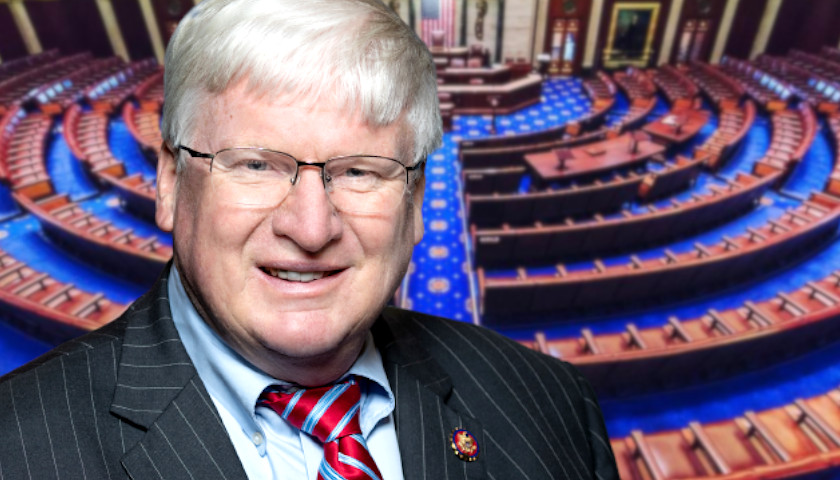by Nathanael Bennett
The need for loans has arguably never been greater in America following the COVID-19 pandemic. A 2020 study conducted by Bankrate.com shows that just 39% of Americans can cover a $1,000 emergency cost without taking out a loan. In a time of economic uncertainty, lenders offer a last resort option for many who are struggling to make ends meet and support themselves and their families.
That could all be changing soon.
House Representatives Glenn Grothman (R-WI-06) and Jesus “Chuy” Garcia (D-IL-04) have recently introduced companion legislation to the Veterans and Consumers Fair Credit Act (S. 2508) aiming to cap annual APR percentages at 36% on consumer loans nationwide. Rooted seemingly in an effort to save loan-seekers from themselves and stop so-called “predatory lending” (where banks charge ultra-high interest rates to vulnerable and needy Americans).
This approach is as wrong-headed as it is unworkable. In the name of helping the neediest, it will make their concerns worse by eliminating financial services when they may be needed most.
Restricting the ability of businesses to offer their services to any and all willing customers not only negatively impacts those businesses, it also affects the consumers. This case is no different. At face value, a 36% APR cap seems almost too good to be true for anyone who doesn’t understand banking. “The lower the better”, they say. Not so fast.
Allow me to explain.
The interest rate of a given loan is a function of the term (payback period) of the loan, the risk the bank is taking to lend you money, and the fixed costs the bank incurs while providing you the service. It is not some arbitrary number the bank generates out of thin air. Typically, longer terms have lower rates but not always. The same is true for risks. Lower risks will have lower rates.
This brings us to unsecured loans – loans in which the bank provide cash to a borrower without requiring collateral. It is the lenders of these type of loans which have become a political whipping boy today.
The regulators in Washington forget that regulation doesn’t work in a vacuum. Restrictions on rates will modify the availability of loans. There is always an elevated risk when loaning cash without any security guarantees beyond a signature. Consequently, lenders use a variety of factors including a credit report to determine how to evaluate the risk for a potential lender. The simple rule is: the higher the risk, the higher the rate.
Remember, lenders don’t force anyone to enter into loan agreements. The circumstances of a borrower are often the primary drivers for a credit contract decision – this is especially true for the low-income community. For instance, a flat tire or a broken refrigerator may necessitate a potential debtor to reach out for a loan.
Credit caps will reduce that possibility. If a borrower’s risk of default is great and the lender can’t offset that risk with a higher interest rate, the loan won’t be offered. In other words, if a loan cap is in place, a father who needs a new tire to get work or a mother who needs a new refrigerator to make sure her preschooler is fed will both suffer if they are high risk borrowers.
At this point, one may wonder why our esteemed elected representatives in Washington believe regulation of private businesses works; as a century of evidence has proven otherwise.
The answer is simple: Like most regulations, the rate cap proposal is a dishonest attempt to persuade Americans that they are being taken advantage of – in this case by banks – and politicians are the only ones who can save them.
If this APR cap is enacted, unsecured loans will be available primarily only to the wealthy and households with exceptional levels of credit worthiness. Although a large portion of Americans are mired in debt, research shows that low-income minority Americans are much more likely to seek emergency loans than white Americans. Remember if this financial lifeline were snatched away by overreaching politicians, it wouldn’t prevent flat tires or broken refrigerators. But instead of being able to go to a community lender, most of these individuals would be required to seek other more costly forms of credit such as those services offered by pawn brokers or loan sharks.
It’s time we stop misrepresenting rate caps as the problem and start looking at alternative solutions that help all Americans. Educating young adults about financial management would be an effective solution. Teaching people how to save to stay out of debt would greatly reduce the need for emergency loans and increasing financial literacy would not only benefit those taking loans, but those giving them. This cookie-cutter legislation fails to serve the very people it claims to defend the most.
– – –
Nathanael Bennett is a fellow with American Commitment





